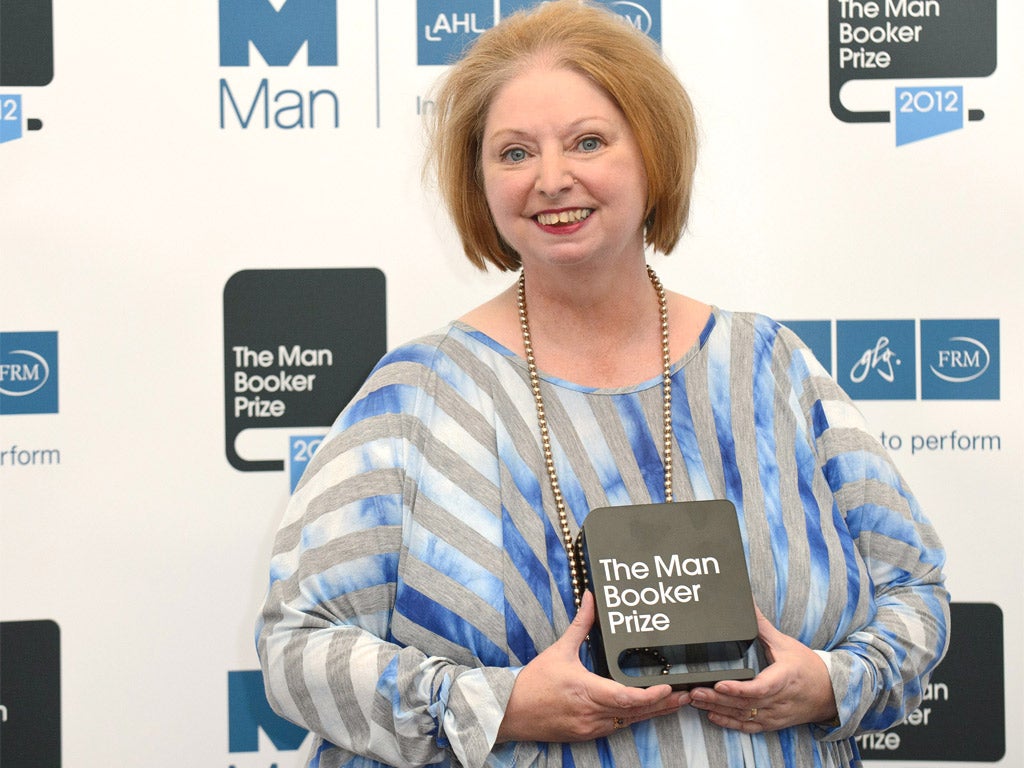Hilary Mantel makes history as bloody tale of Tudor times wins her second Man Booker Prize
The 60-year-old becomes first woman to be recognised twice by judges

Hilary Mantel has become the first British writer and the first woman to win the Man Booker Prize twice, as the judges hailed Bring up the Bodies as a "remarkable" book that "transcends the work already written by a great English writer".
The 60-year-old author joined an exclusive club alongside just two other novelists, South African JM Coetzee and Australian Peter Carey, to win the award twice.
Sir Peter Stothard, chair of the judges and editor of the Times Literary Supplement, called Mantel the “greatest English prose writer eligible for the prize”.
Mantel first won for Wolf Hall in 2009, which brought her worldwide fame, and she won the award again last night at a glittering ceremony at London’s Guildhall for the second part of a planned trilogy.
Sir Peter said. “She has rewritten the book on writing historical fiction. She began to rewrite it with Wolf Hall and in my view she has utterly surpassed that in Bring up the Bodies.”
It follows Thomas Cromwell, chief minister to Henry VIII, who is trying to keep the King happy and save his career. After Anne Boleyn, for whose sake Henry broke with Rome, fails to provide a son, the King develops a dangerous attraction for Jane Seymour.
Sir Peter said Bring up the Bodies was a “bloody story” but Mantel “thinks through the blood, and uses her art and power of prose to create moral ambiguity and the real uncertainty of political life then”.
The judges came to the decision after deliberating about “six extraordinary pieces of English prose” after 2 hours and 16 minutes. Sir Peter hailed Mantel’s “complete control of prose” as well as the “pure art and powerful intentions”.
The storytelling was also strong, he said. “You can see as much of Don Corleone in the book as DH Lawrence. There is certainly a Godfather element to this book.”
The prize brings a cheque of £50,000 with it, and Mantel can also expect a huge bump in sales of the novel, with every winner since 1996 grossing more than £1m after winning. Wolf Hall itself went on to make £5.4m.
According to Nielsen Bookscan, Bring up the Bodies has sold over 105,000 copies to the end of September, more than the others combined. Wolf Hall sold over 631,000.
Sir Peter said the judges did not take the original into account when considering Bring up the Bodies, and he had not even asked the other judges if they had read it. “It is tighter; I think she’s learnt her lessons from Wolf Hall in the way the prose was written.”
The bookmakers had made Hilary Mantel the narrow favourite for the prize over Will Self, the first time he had made the Booker shortlist, for his modernist novel Umbrella.
When announcing the shortlist, Sir Peter had said that as well as the more established novelists “the new had come powering through”.
Jeet Thayil, an Indian poet, was nominated for his first novel Narcopolis, about the changing drug scene in Mumbai, while The Lighthouse was the debut novel by short story writer Alison Moore. Tan Twan Eng’s first novel The Gift of Rain made the Booker longlist, and he went one better this year and made the shortlist with The Garden of Evening Mists.
Deborah Levy’s first novel for a decade Swimming Home was ignored by publishers, and was eventually picked up by an independent company And Other Stories that uses a subscription model.
The prize was first awarded in 1969, and is awarded for the best novel written in English by a citizen of the Commonwealth or the Republic of Ireland.
Join our commenting forum
Join thought-provoking conversations, follow other Independent readers and see their replies
Comments
Bookmark popover
Removed from bookmarks